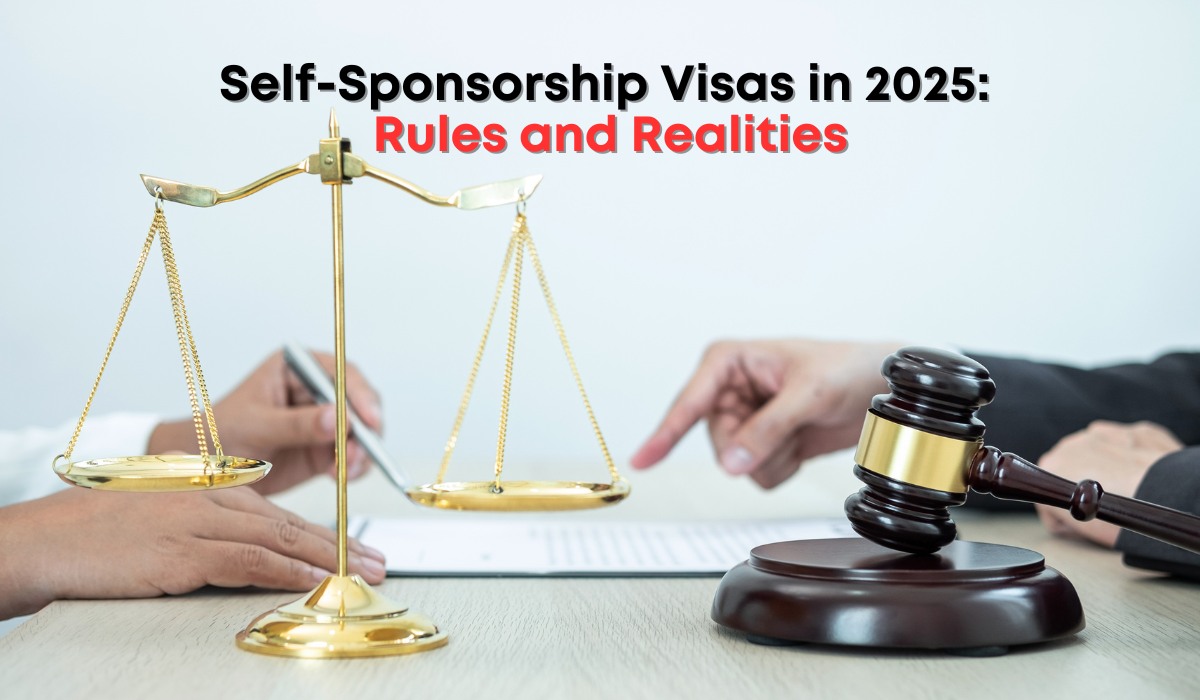The UK Home Office recently updated its guidance on sponsor licences, prompting widespread speculation about the implications for Self-Sponsorship Visas. The changes, outlined in “Workers and Temporary Workers – guidance for sponsors part 1: apply for a licence”, have clarified the rules on sponsoring workers in a personal capacity, raising questions for licence applicants. Here, we explore what this means for businesses, sole traders, and individuals seeking to use the self-sponsorship route.
The Prohibition on Sponsoring Workers in a Personal Capacity
The updated guidance explicitly states that sponsor licences must not be used to sponsor workers in a personal capacity. A new refusal ground has been introduced for sponsor licence applicants intending to sponsor overseas workers in a personal context. For instance, individuals cannot use their sponsor licence to bring in workers such as nannies, private nurses, or chefs for their households.
This change has caused confusion among prospective applicants who question whether they can still apply for or maintain a Self-Sponsorship Visa. However, it is crucial to note that the rule change does not prohibit self-sponsorship. Instead, it reinforces the existing policy that sponsor licence applicants must be operating as a legitimate business entity — a company, partnership, or sole trader — rather than applying as a private individual.
Key Distinctions: Business vs. Personal Capacity
The guidance provides specific examples to clarify when a sponsor licence application will be refused:
- A sponsor licence application will be declined if an individual applies to sponsor a worker (e.g., a nanny or chef) for personal benefit and is not otherwise engaged in business activities.
- Similarly, if a company or sole trader uses a sponsor licence to employ someone for personal household work rather than for business purposes, the licence will be revoked.
This rule ensures that the sponsor licence system remains focused on genuine business needs rather than personal employment arrangements.
Implications for Existing Sponsored Workers
If an existing sponsor licence holder has been sponsoring workers in a personal capacity, the guidance warns that their licence may be revoked. The Home Office advises that such licence holders must not assign further Certificates of Sponsorship for these roles. Non-compliance could lead to severe consequences, including the revocation of the licence, a cooling-off period preventing reapplication, and disruption to the sponsored worker’s immigration status.
Can You Still Apply for a Self-Sponsorship Visa?
Despite some sensationalist media reports, the updated guidance does not spell the end of the Self-Sponsorship Visa. Provided you follow the rules, you can still apply for a sponsor licence and sponsor yourself as a skilled worker. However, the process requires careful planning:
- Business Structure: Sole traders can apply for a sponsor licence if they operate a legitimate business. However, many legal and financial professionals recommend establishing a limited company for greater flexibility and compliance.
- Legal and HR Compliance: Self-sponsorship involves more than securing a licence. You must conduct right-to-work checks, issue employment contracts, set up a pension scheme, and implement HR policies that comply with Home Office requirements.
Steps for a Successful Sponsor Licence Application
Whether you are a start-up founder or a sole trader considering self-sponsorship, it is vital to take the following steps:
- Verify Right-to-Work Eligibility: Ensure that the individuals you plan to sponsor meet the requirements.
- Draft Employment Contracts: These should align with UK employment law.
- Set Up HR Policies: Comprehensive policies are essential for meeting sponsor licence reporting and recording duties.
- Pension Compliance: Ensure your business is registered for automatic enrolment in a pension scheme.
By adhering to these requirements, you will not only strengthen your application but also safeguard your business from potential Home Office scrutiny.
The Risks of Non-Compliance
Failure to comply with the updated guidance could lead to:
- Revocation of your sponsor licence
- Ineligibility to apply for a new licence during the cooling-off period
- Disruption to the immigration status of your sponsored workers
- Financial penalties for failing to conduct right-to-work checks
The consequences extend beyond administrative inconvenience; non-compliance can tarnish your business reputation and disrupt operations.
Seeking Legal Advice: The Key to Success
The sponsor licence and self-sponsorship routes remain viable options for businesses and entrepreneurs looking to recruit skilled workers from overseas. However, the complexity of the process underscores the importance of seeking expert legal advice. Immigration Solicitors can provide tailored guidance on business structure, compliance, and the application process, helping you avoid costly mistakes.
At GigaLegal Solicitors, our team specialises in sponsor licence applications and Self-Sponsorship Visas. Whether you are setting up a start-up or restructuring your existing business, we can guide you through the process and ensure you meet all legal obligations.
Final Thoughts
The updated Home Office guidance has not abolished the Self-Sponsorship Visa but has reinforced the need for clarity and compliance in sponsor licence applications. By operating within the rules and seeking specialist legal advice, businesses can continue to leverage the self-sponsorship route to bring skilled workers to the UK.
For further information or to discuss your specific case, contact our Immigration Solicitors in London today. We are here to help you navigate the complexities of UK immigration law and achieve your goals with confidence.
Get in touch: For a comprehensive understanding of your options or queries on UK immigration matters, contact GigaLegal Solicitors at 02074067654 or click here to book a no-obligation consultation with an immigration expert.


